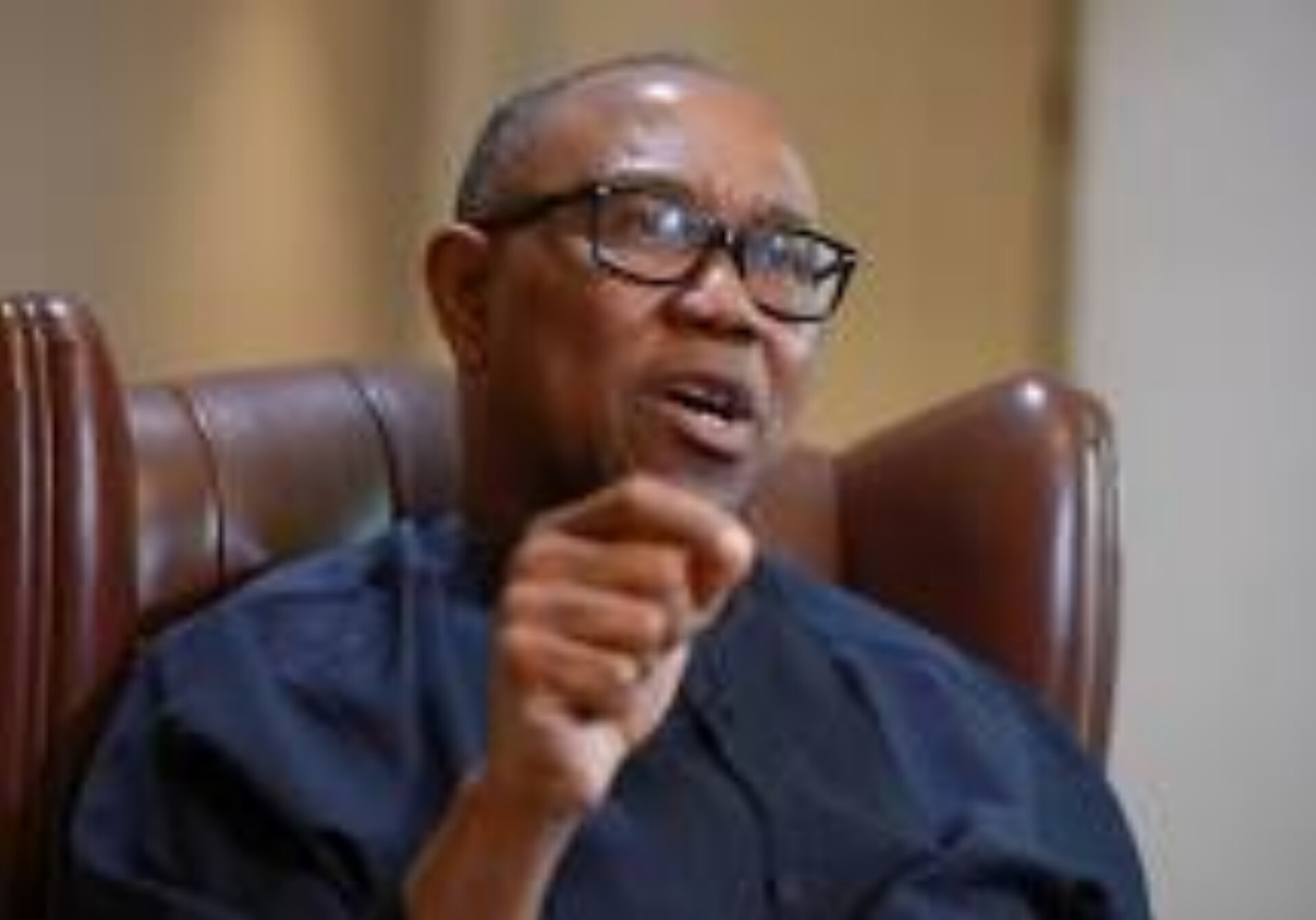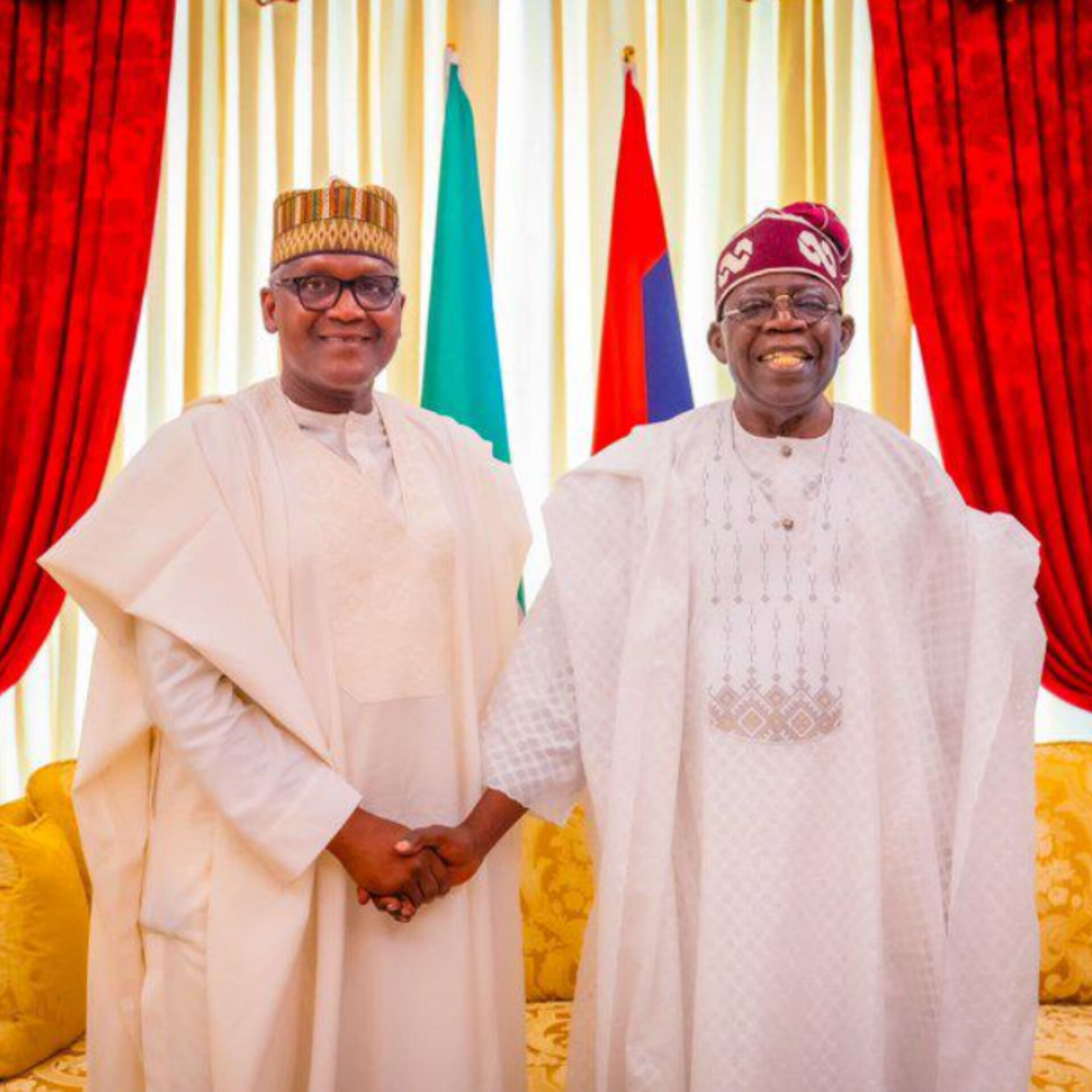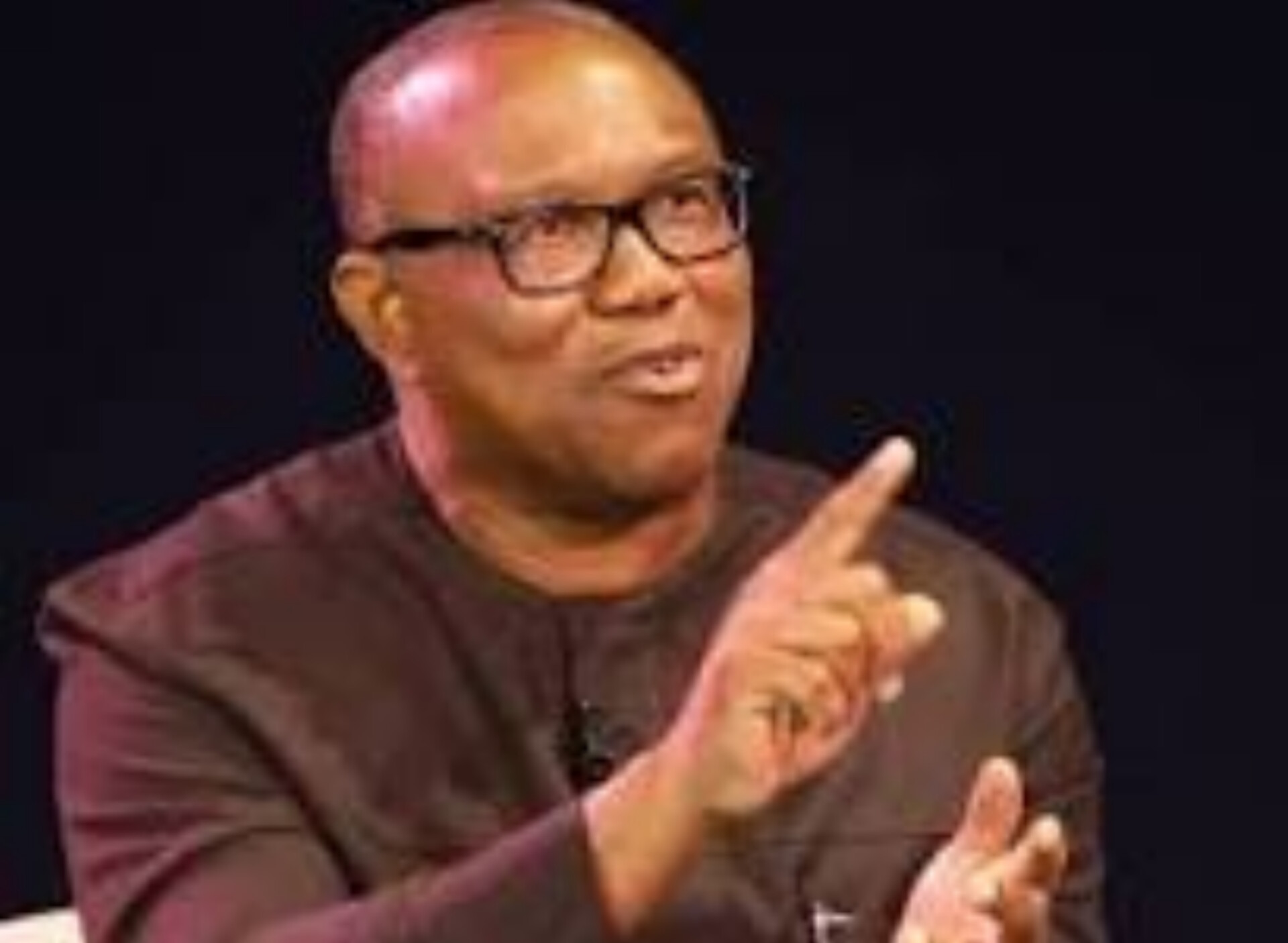National
Subsidy: Lukman asks Tinubu to eliminate distractions of strikes

*** Develop functional partnership with organise labour
A member of the National Working Committee (NWC) of the ruling All Progressives Congress (APC) Mallam Salihu Lukman, has urged President Bola Tinubu to do all within his power to eliminate distractions that comes with strikes by orgarnised Kabour
The APC stalwarts also asked the President to immediately develop functional partnership with organise labour to facilitate consultations between the government and the unions.
In a statement released Tuesday in Abuja, titled “Nigerian Democracy and the Challenge of Governance,” Lukman said there are many policy issues that organised labour would be interested in adding that simple courtesy of being in the loop of policy design would help reduce frictions and tension between labour and APC governments and eliminate distractions that come with strikes.
Lukman who is also the North-west zonal vice chairman of the party called for a common template to be agreed upon between the government and the labour unions to guide consultations.
According to Lukman, it will be easier for organised labour to develop a functional relationship with APC and its governments at all levels and seek to defend and promote the interests of Nigerian workers than for NLC and its partners to reclaim the Labour Party and use it to sponsor candidates and win elections.
While commending the labour unions for the suspension of nationwide strike over subsidy removal, Lukman said the Nigerian Labour Congress (NLC) and their partners would have been the first casualty had it been Peter Obi won the last presidential election.
He said: “Good enough, the young government of President Tinubu was able to open negotiations with NLC and TUC and already both NLC and TUC have agreed to suspend their planned strike action. However, beyond the suspension of the planned strike action, APC and the government of President Tinubu must consider developing functional partnership with organise labour.
“The partnership must be strategically to facilitate consultations between organised labour, APC as a party and the governments it controls both at federal and state levels. Common template should be agreed to guide consultations. There are many policy issues that organised labour would be interested and simple courtesy of being in the loop of policy design would help reduce frictions and tension between labour and APC governments and eliminate distractions that come with strikes.
Some would argue that NLC has already registered Labour Party. The truth is that NLC lost Labour Party a long time ago. What exists today as Labour Party is a corrupt representation of the Labour Party envisioned by the NLC in 2002. The Labour Party envisioned by the NLC in 2002 was a party to be controlled by people committed to Nigerian working class. For quite sometimes now, Labour Party is the political equivalent of stock market whereby every person aspiring to emerge as a candidate of the party for election, is free to bid so long as he/she has the resources.
“The reality is that the highest bidder wins the ticket of the party. This is what produced Mr. Peter Obi as the Presidential candidate of the Labour Party in the 2023 elections. NLC and all their partners had no say in the emergence of Mr. Obi and had he won the election, NLC and their partners would have been the first casualty.
“Besides, NLC and TUC need to come to terms with the fact that they must relate with the government of the day to promote and defend the interests of Nigerian worker. They must relate with the federal government both as a sovereign authority and as the largest employer of labour irrespective of the party in power.”
The APC chieftain believed that once negotiation is limited to getting organised labour to accept the new policy of withdrawal of fuel subsidy without contracting partnership agreement with organised labour aimed at securing functional relationship to negotiate the roll out of difficult policies, which would be considered necessary to move Nigeria forward, the old distractions of managing strike actions by organised labour would continue.
“Developing a functional partnership relationship with organised labour, and by extension other groups, require deeper political reforms in the country. To achieve that would also demand more focus in reforming the APC as a pollical party, which may have to compel President Tinubu to ask the APC leadership to organise mid-term National Convention earlier than schedule.
“Some of the changes for instance required to bring about new leadership who could lead the party to achieve its vision of being a progressive party can only be decided by the National Convention. If, for instance, the party want to correct the problem of having reactionaries and conservatives leaders such as Sen. Adamu and Sen. Omisore leading the party, organising a mid-term convention is necessary and compelling.
“The earlier this is done, the better for the young government of President Tinubu especially if he wants to run a progressive federal government, one that can guarantee the participation by Nigerians represented by their organised groups in his government as provided by the 1999 Nigerian constitution as amended.”
National
Obi sounds the alarm over deplorable Power Situation

***Says Nigeria cannot grow its economy in Darkness
***Expresses sadness that Nigeria is the lowest per capita wattage in the World.
***wants a Technical Task Force in Place.
The incessant power situation in the country with record of national grid collapse 141 times in 11 years is a case for urgent pragmatic solutions, the Presidential Candidate of the Labour Party (LP) in the 2023 general election, Peter Obi has indicated
He expressed deep concerns that Nigeria has only 13,000mw while the demands are about 200,000mw.
Obi pointed out that even with the 13,000mw, only about 3,500mw are available for homes and businesses noting that the situation puts Nigeria as the lowest per capita wattage in the World.
In an article, titled “The Collapsing Electricity Sector”, the LP standard’s bearer said “The Nigeria electricity supply industry faces real and present danger of collapse despite the efforts made in more than two decades to initiate a reform of the NESI.
“It is sad today that we suffer periodic and routinized system collapses that are attributed to such avoidable situations as fire outbreaks at critical transmission lines across our major cities.
“It is absolutely distressing and a story of a low level of managerial capability that the entire nation can be plunged into total darkness for a reasonable period because networks go out because of a lack of diligent attention.
“It should worry any Nigerian patriot that the total installed capacity for a country of more than 200 million people with an aspiration to become a global medium economy power is a mere 13,000.
“Worse still, only about 3,500mws are available for homes and businesses from the grid. Sometimes, it grinds to less than 2,500mws. This is unacceptable.
“We can contrast the available supply of electricity with competitor countries in Africa like Egypt and South Africa with respective populations of approximately 112m and 59.6m people supplying about 60,000mw and 58,000 respectively.
“This difference in energy wattage has massive implications for human development and economic growth.
“Nigeria today has the world’s lowest per capita wattage in the world, interesting lower than those of most of our West African neighbours.
“It is really sad that whereas our energy demand is above 200,000mws, we have only 13,000mw installed capacity and can only deliver regularly less than 4,000mw.
“After speaking with experts in the sector I have realized that the crisis of power supply in Nigeria relates to two major sectors: (1) generation, and (2) transmission and distribution.
“The major challenges of the generation sector are the lack of a regular supply of gas arising from the failure of the government in the last 8 years to provide adequate gas infrastructure facilities, weak commerciality of gas to power and failure to control the restiveness of angry youths leading to vandalism.
“It is shameful that for more than 8 years we cannot resolve the infrastructural bottlenecks that constrain the supply of gas to power plants despite billions from CBN for legacy gas debts.
“On the transmission and distribution side, the last 8 years have witnessed terrible failure to overcome the deterioration of networks and transmission and distribution networks and invest in modern technologies like SCADA leading to poor coverage, lack of effective coordination between TCN and discos leading to load rejection and inability to generate public trust for policy reform on tariff and leading to low private sector investments.
“If we had a good project manager, we would have massively increased generation, transmission and distribution capacity and enhanced policy coherence that would have crowded private sector investment in the degree to sustained rapid growth of the grid. The problem is that the government have exercised the required political will to appoint the right kind of leadership that understands the problems of the sector and has the singular dedication and competence to create quick wins in the short term and transformation in the medium to long term.
“I suggest that the Federal Government immediately constitute a technical task force of real professionals without political consideration to present a diagnosis of the crisis of the sector and to get to work to correct such simple slippage like incessant fire outbreaks that lead to perennial system collapse, drastically improve coordination and coherence between TCN and discos so there will be no load rejection, and breath down on all operators to deliver on their technical responsibilities. This will rapidly improve power availability in the short term while the government develop clarity to articulate an integrated national electricity policy and a practical implementation roadmap that harmonizes national and sub-national electricity reform efforts to ensure rapid and expansive delivery of reliable, adequate, and affordable electricity.
“We are too endowed to be a nation of generators and to be trapped in darkness. We cannot grow our economy in darkness.
National
Tinubu applauds Dangote Group over diesel price reduction

From Ahmed Rufai, Dutse
Nigeria’s President, Bola Tinubu has commended the examplary achievement of Dangote Oil and Gas Limited, in reducing the gantry price of Automotive Gas Oil (AGO), also known as diesel.
The Group recently reviewed the gantry price of AGO, downwards from ₦1,650 to ₦1,000 per litre for a minimum of one million litres of the product, as well as providing a discount of ₦30 per litre for an offtake of five million litres and above.
The price review represented a 60% drop, which will, in no small measure, impact the prices of sundry goods and services.
A statement signed by Special Adviser to the President (Media & Publicity), Ajuri Ngelale, on Wednesday, said the president affirmed that Nigerians, domestic businesses, and the transportation sector, will benefit enormously from the price reduction.
Tinubu noted that partnerships between public and private entities were essential to advancing the overall well-being of the country
The federal government currently has a 20% stake in Dangote Refinery.
The president then called on Nigerians and businesses, to, at this time, put the nation in priority gear while assuring them of a conducive, safe, and secure environment to thrive.
National
Budget 2024: Again Obi uncovers more insensitive, undeserving allocations

The Presidential Candidate of the Labour Party in the 2023 general elections, Peter Obi has again uncorvered lopsided allocations in the 2024 federal budget
Obi in his previous remarks on the budget called for a total review of the budget
He insisted that there were various misplacement of priorities tilted against poor and vulnerable Nigerians
Obi expressed dismay that the National Assembly Hospital was receiving whooping N15b for one year, the amount which he said is five times more than that allocated to the National Hospital and six other premier Teaching Hospitals in the country.
The former Anambra Goverrnor made his observation his verified X handle on Tuesday
In his words ‘I will remain persistent in my expressions of deep concern about the 2024 budget because of its critical importance to the lives of the citizens especially the poor in our midst.
“I will continue to do so until the end of the year as a matter of patriotic engagement. This is because the many negatives of the budget have far-reaching implications for the development of our dear nation and the well-being of our citizens.
“It is evident that there are items in the budget that do not align with our current circumstances, and it is imperative to call for a review and appropriate virement. Allocating our scarce resources to high-priority areas of need is essential for the well-being of the nation.
“For instance, allocating N15 billion solely for the National Assembly hospital is unacceptable, especially when it exceeds five times the budgetary allocation to the National Hospital or the combined capital vote of our six major teaching hospitals across the nation, namely; University College Hospital, Ibadan; University of Nigeria Teaching Hospital, Enugu; Ahmadu Bello University Teaching Hospital, Zaria; Obafemi Awolowo University Teaching Hospital, Ile-Ife; Jos University Teaching Hospital and University of Ilorin Teaching Hospital.
He said the disparity reflects a low level of care for the rest of society.
“Similarly, justifying a budgetary allocation of N15.3 billion for the National Assembly library project and procurement of books, including the e-Library, in a country without a National Library is very disappointing.
“The National Library has been under construction for the past 20 years, and its budgetary allocation for 2024 is less than 1B Naira, which makes the National Assembly Library budget 15 times more.
“Again the National Assembly Library budget is more than the combined budget of the top national universities’ libraries that desperately need the Libraries for research, teaching and learning purposes.
“Furthermore, allocating N10 billion for the Senate’s and House of Representatives car parks and the National Assembly Recreation Centre, while allocating less to the Ministry of Science, Technology, and Innovation, is concerning. In an era where science, technology and innovation are crucial for the nation’s future, such allocations demonstrate a lack of foresight and basic awareness of global trends and urgent national priorities.
“This level of insensitivity to the present situation and challenges faced by the people should not be tolerated by any development-minded nation.
“Every scarce resource must be directed towards productive sectors of the economy. It is time for our nation to reassess its priorities, revisit the budget, eliminate frivolous expenditures and channel our resources properly for the benefit of the people.
“No great nation is built on a foundation of waste and frivolity.”
-

 Crime6 months ago
Crime6 months agoPolice nabs Killer of Varsity Lecturer in Niger
-

 News3 months ago
News3 months agoFCT-IRS tells socialite Aisha Achimugu not to forget to file her annual returns
-

 Appointment7 months ago
Appointment7 months agoTinubu names El-Rufai, Tope Fasua, others in New appointments
-

 News From Kogi5 months ago
News From Kogi5 months agoINEC cancells election in 67 polling units in Ogori-Magongo in Kogi
-

 News From Kogi8 months ago
News From Kogi8 months agoEchocho Challenges Tribunal Judgment ordering rerun in 94 polling units
-

 News7 months ago
News7 months agoIPOB: Simon Ekpa gives reason for seperatists clamour for Biafra
-

 Metro4 weeks ago
Metro4 weeks ago‘Listing Simon Ekpa among wanted persons by Nigeria military is rascality, intimidation’
-

 News3 months ago
News3 months agoKingmakers of Igu/ Koton-Karfe dare Bello, urge him to reverse deposition of Ohimege-Igu

